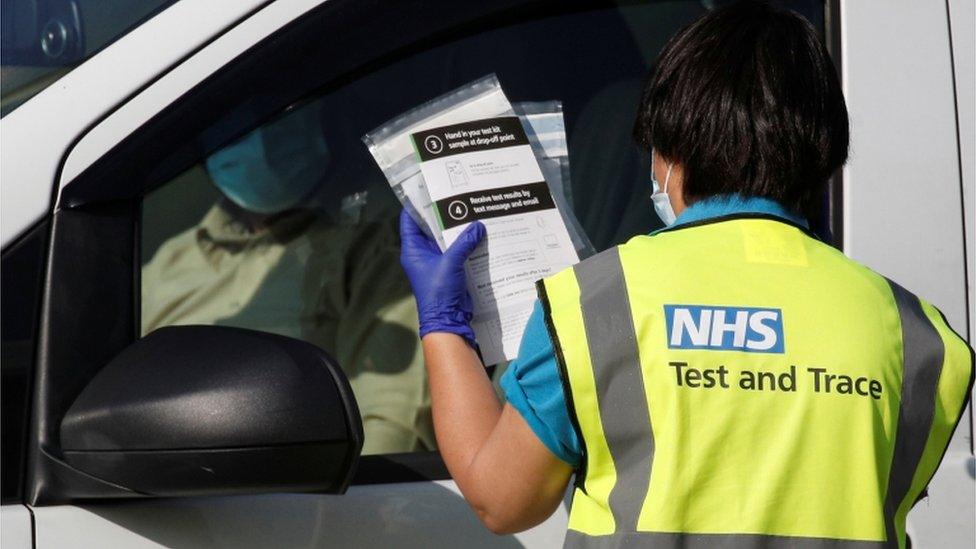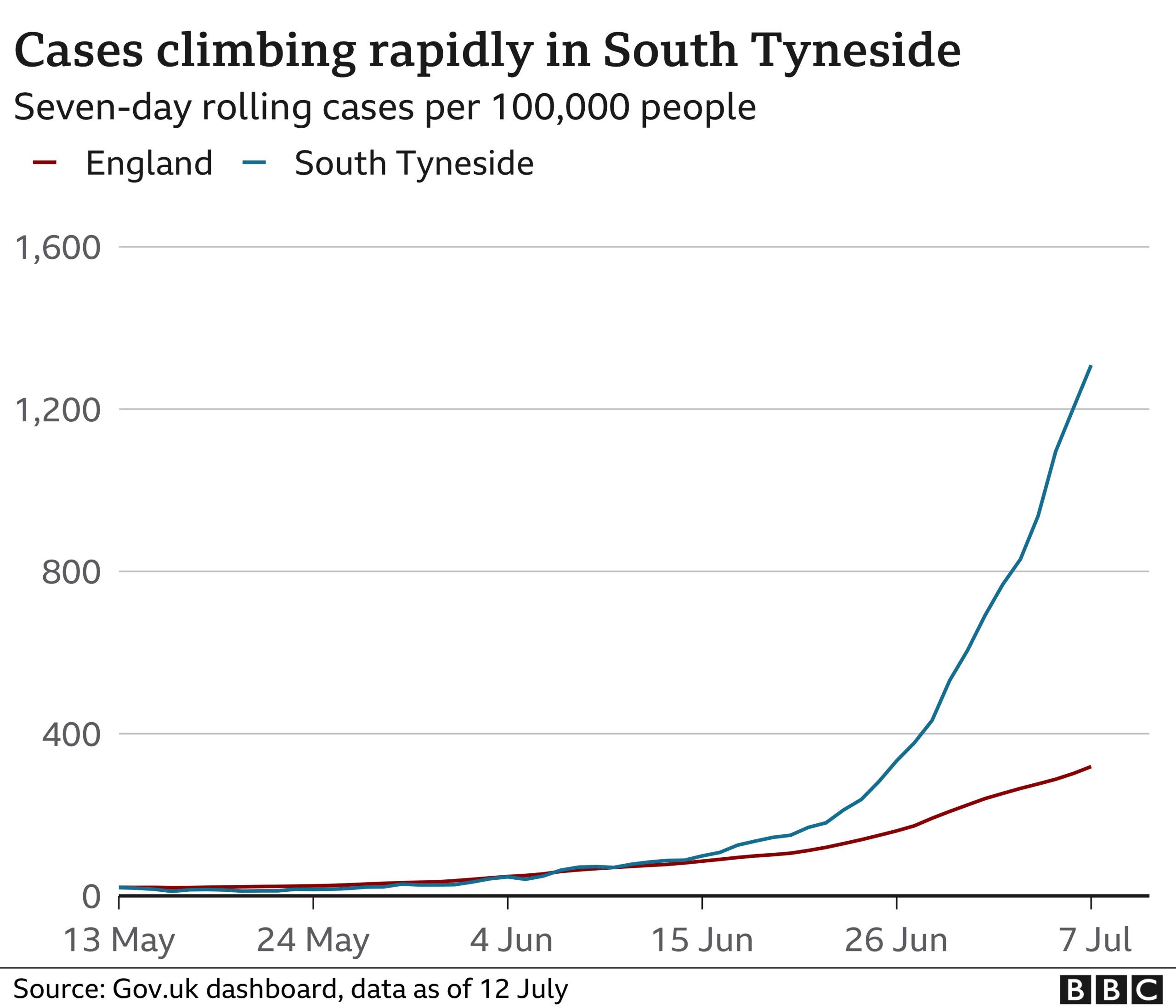Covid: South Tyneside case rate now highest in England
- Published

The South Tyneside figures are the highest rate recorded anywhere in England since 10 January
A doctor is calling for masks to remain mandatory as the rate of Covid-19 cases in South Tyneside nearly doubled in a week to make it the highest in England.
The borough saw 1,359 cases per 100,000 people in the seven days to 8 July - the previous week the rate was 691.
Eight North East areas are now in the top 10 worst-affected parts of England.
Dr George Rae, chairman of the North East British Medical Association, said mask wearing should remain in law for public transport, pubs and shops.
While the government has confirmed all restrictions will end on 19 July, South Tyneside and Sunderland NHS Trust said the surge in cases had coincided with a large number of staff having to self-isolate and emergency department attendances of more than 600 per day.
The trust said the pressure was so great it will suspend all visits to adult inpatient wards at South Tyneside District Hospital, Sunderland Royal Hospital and the Intermediate Care Assessment and Rehabilitation unit at Houghton Primary Care Centre from 14 July.
It issued a statement on Tuesday, external which revealed it has "over 80 people now in hospital with confirmed Covid-19 compared to just two people exactly a month ago".

Dr Rae said: "There's really quite a difference between being expected to do it [wear a mask] and it being mandatory.
"Public health measures which we've actually been abiding by have played a huge part in helping us fight the virus.
"Therefore I think it should be mandatory to wear a mask in certain specific situations."
The government wants people to take personal responsibility and is advising the public to keep wearing masks in crowded places.
The South Tyneside figures are the highest rate recorded anywhere in England since 10 January and mean one in 74 people in the borough were infected in a week.
The highest rate seen anywhere during the pandemic was in Barking and Dagenham which had about 1,700 cases per 100,000 people at the height of the December-January wave.

Tom Hall, director of public health for South Tyneside Council, said: "We are closely watching if those levels of harm escalate, and how rapidly they escalate, and whether they put risks on the most vulnerable at the cost of other restrictions in people's lives.
"So it really would be a balancing act, and one that we are monitoring carefully."

The high number of cases in the North East had given rise to concerns that a new local variant had emerged, but Public Health England said the figures remained consistent with the rise in Delta variant infections across the country.
Covid incident director Dr Andrew Lee said: "Routine surveillance is ongoing for all variants and we will continue to use our excellent genomics, epidemiology and virology capacity to ensure that public health interventions remain effective and proportionate.

Analysis
Rob England - BBC England data unit
South Tyneside is far in front of any other local authority in England in terms of case numbers compared to the amount of people who live there.
There's also no clear evidence this rapid rise is beginning to slow.
Hospital admissions have also begun to creep up at the nearest NHS trust, with the latest figures to 6 July suggesting the number of beds occupied by Covid patients have more than doubled.
However, none of these patients are on a mechanical ventilator, or otherwise in critical care.
This could be because the latest wave started with, and remains focused, on younger people - who are less likely to become seriously ill from the virus even without the vaccination.
It may be that although infections have now spread to the majority of other age groups, the vaccine is still protecting older people from needing serious treatment.
So, some potentially positive signs, but public health officials are keen to stress no spread of the virus is good, and no doubt efforts will be made to ensure everyone gets double-jabbed in the area.

Follow BBC North East & Cumbria on Twitter, external, Facebook, external and Instagram, external. Send your story ideas to northeastandcumbria@bbc.co.uk, external.
- Published6 July 2021

- Published5 July 2023
